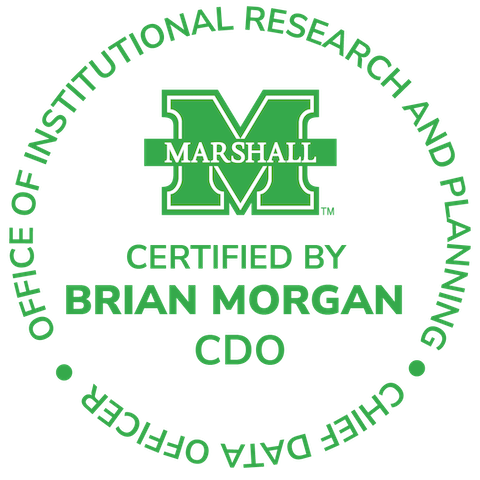
Why I Put My Stamp on My Work
If you have come across a report generated by our office since I started in July, you might notice something rather distinctive—my name and seal on it. No, it is not an act of arrogance or a claim to fame, but an assertion of accountability, authenticity, integrity, and quality. This is my way of not just taking pride in my work but also providing you with an assurance that if you see my name attached to published data, you can trust that it has been vetted and verified. Let’s delve into why this personal endorsement is critical. In my position, authenticity and integrity are not just qualities, but they are the cornerstones that set the standard and my stamp signifies a commitment to not only factual accuracy but also to ethical rigor, ensuring that everything I do adheres to the highest professional and ethical standards, which hopefully makes my contributions distinct and trusted.
Taking Ownership
Ownership goes beyond responsibility as it embodies a sense of pride and dedication, making the work I do part of my identity. When my name is on a dataset, it signifies that I stand by every fact and every analysis drawn from it. This is not merely about professional responsibility, but it is a testament to the hours poured into ensuring that each piece of information holds up to scrutiny. It is a badge of dedication, saying, “I’ve got this, and you can count on it.”
Navigating The Sea of Data: The ‘Why’ Behind the Stamp
In an era where data is generated at a breakneck speed, not all of it undergoes rigorous validation, and even more importantly, a short description of data found in different reports may be titled the same, but may have a different meaning. Raw numbers are easy to produce but understanding what they represent requires analysis and clarity. This is where the “stamp” comes in. When you see my name on data, you know that it has undergone meticulous examination and that it matches the definition from which it was created so that it has meaningful purpose.
A Point of Contact for Inquiry
Data often raises questions, and that is a good thing as a curious mind is an active one! The stamp serves as an open invitation to engage in dialogue. Wondering about a specific metric? Curious about the methodology? Need clarification on a finding? When you see my stamp, you know exactly who to come to for answers. And trust me, I love the opportunity to delve deep into the data as it is a conversation I always look forward to.
No Stamp? Let’s Talk.
Just because data does not have my name on it does not mean it is incorrect or unreliable, but it does indicate that the data may not have undergone the same level of scrutiny, may have been generated based on a different definition, etc. If you find conflicting information in unendorsed datasets, don’t jump to conclusions, but instead, consider it an invitation to have a meaningful conversation about what those numbers might indicate. After all, data can offer different insights depending on the angle of interpretation.
Final Thoughts
Data is more than numbers in a spreadsheet as it is often a story waiting to be told. Like a good story, data needs an author willing to stand by every word and that is what my stamp represents. When you see my name attached to a dataset, know that what you are looking at is more than just information as it is a commitment to quality, understanding, and an invitation to open dialogue.
Stay informed with data!
Brian M. Morgan
Chief Data Officer, Marshall University